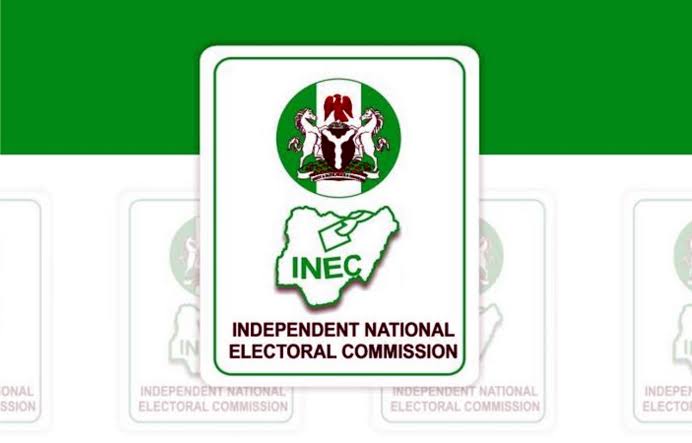It is a common knowledge that the root cause of Nigeria’s problem is lack of good leadership. Yet, the leaders appear to make no serious efforts towards concrete solutions. Instead, they make the leadership process so deceitful, dishonest, and deadly. To that end, politics is abandoned to a small clique of the corrupt class. The most shameless in the Nigeria’s leadership process is the Independent National Electoral Commission (INEC). As the name suggests, INEC was envisioned as an independent organisation in line with item F,14(2c) of the Third Schedule of the 1999 Nigerian Constitution (as amended).
This section states unequivocally that any of its members must “be nonpartisan and a person of unquestionable integrity.” The constitution also vests the appointment of principal INEC officials with the president of the country. Unfortunately, most of the appointees have been neither nonpartisan nor independent. But partisan and dictatorial grip of INEC has been a major reason Nigerian elections cannot be mentioned in the same breath with the term “free and fair.” That is a major reason potential good leaders but who have no connection to the corrupt class always shy away from politics.
However, instead of placing the blame squarely where it belongs, the INEC chairman is typically the scapegoat. A salient factor that has not received adequate attention in the contextual analysis of INEC is that, besides its chairman, the other principal officers who represent the electoral body from the national to the ward levels are typically the sympathizers or card-carrying members of the ruling party. To that end, even where the INEC was able to produce a semblance of a free and fair election, the opposition usually hides behind the partisan shade of the commission to occasion a flood of conspiracies to wash away the credibility of the election.
This distrust only goes to undermine the sanctity of the elections, deepen the depth of the disrepute commonly associated with the country’s democracy; and consequently, drive good people away from participation. To improve the system, Nigeria should explore a multi-party electoral commission. A multi-party structure, with members nominated by the different political parties, will strengthen the needed checks and balances within the commission itself. This approach should extend to the recruitment of electoral officers from the national down to the ward levels and polling booths.
A multi-party structure can restore confidence and ensure trust throughout the width and breadth of the commission. This proposal is not entirely new. It parallels the position of the main opposition party in the 2007 election, the All Nigeria Peoples Party (ANPP), where Emmanuel Eneukwu, its National Publicity Secretary at the time, and who is currently the Deputy National Chairman (South) of the ruling APC, canvassed for a review of the electoral laws to include members of the different political parties in the leadership of the national election commission.
The multi-party electoral model is the core of the American system, which remains a paragon of democracy. Members to both the federal and state election commissions are drawn from the country’s two major political parties. The apparent political equipoise profoundly promotes internal checks and balances within the system. Thus, even if where a questionable character is nominated to an electoral commission in any of the states, the opposition party would reject or counter such nomination accordingly.
The partisan balance within the U.S. electoral system, more than any other factor, accounts for the widely celebrated vitality of the American institutions. It also accounts for why and how President Donald Trump could not succeed in his asinine scheme to compel some state electoral bodies, including those controlled by his party, to overturn the 2020 U.S. presidential election in his favour. Perhaps, Nigeria has explored various strategies over the years to checkmate partisan maneuvers within the INEC.
The electoral body has recruited members of the National Youth Service Corps (NYSC) and university professors to assist in recent exercises. There were equally past efforts, for example, the 2008 Electoral Reform Committee (ERC), which proposed, among other things, that a neutral body, particularly the National Judicial Council, should appoint all the INEC officials, including its chairman. The ERC also called for the members of INEC to include representatives of the Nigerian Labour Congress (NLC) and the news media, among others. The idea of a neutral electoral body is superficially attractive.
But recruiting people from a cadre of pliant Nigerian institutions and expecting them to be impartial is no different from perceiving a stench as an aroma. Not surprisingly, the university recruits are always accused of partiality or being wholly subservient to the parties in power either at the states or the federal level. Constituting INEC with officials who have clear party identification offers best compromise.
Unlike other institutions, the political party has the potential to provoke steadfast allegiance from the people – far more than tribe, religion, and even more than blood relationships, especially in Nigeria, where prebendal politics dictates the content and character of socio-economic wellbeing. True independence or neutrality of INEC is more attainable in an environment, where two or more independent parties can checkmate each other from acting contrary to the stated objectives. This proposal is no rocket science.
But it is clear the problem with INEC is wilful. In my conversation with then Senate President, Ken Nnamani, in 2005, he regrated that most Nigerian leaders know what to do to improve the system but choose to do otherwise. They becloud themselves with an assumption that “no party wants to kill itself,” he said. In other words, improving the system would engender true competition and chances of defeat. But I leave us with this admonition from a former U.S. President, John F. Kennedy “Those who make peaceful revolution impossible will make violent revolution inevitable.”















